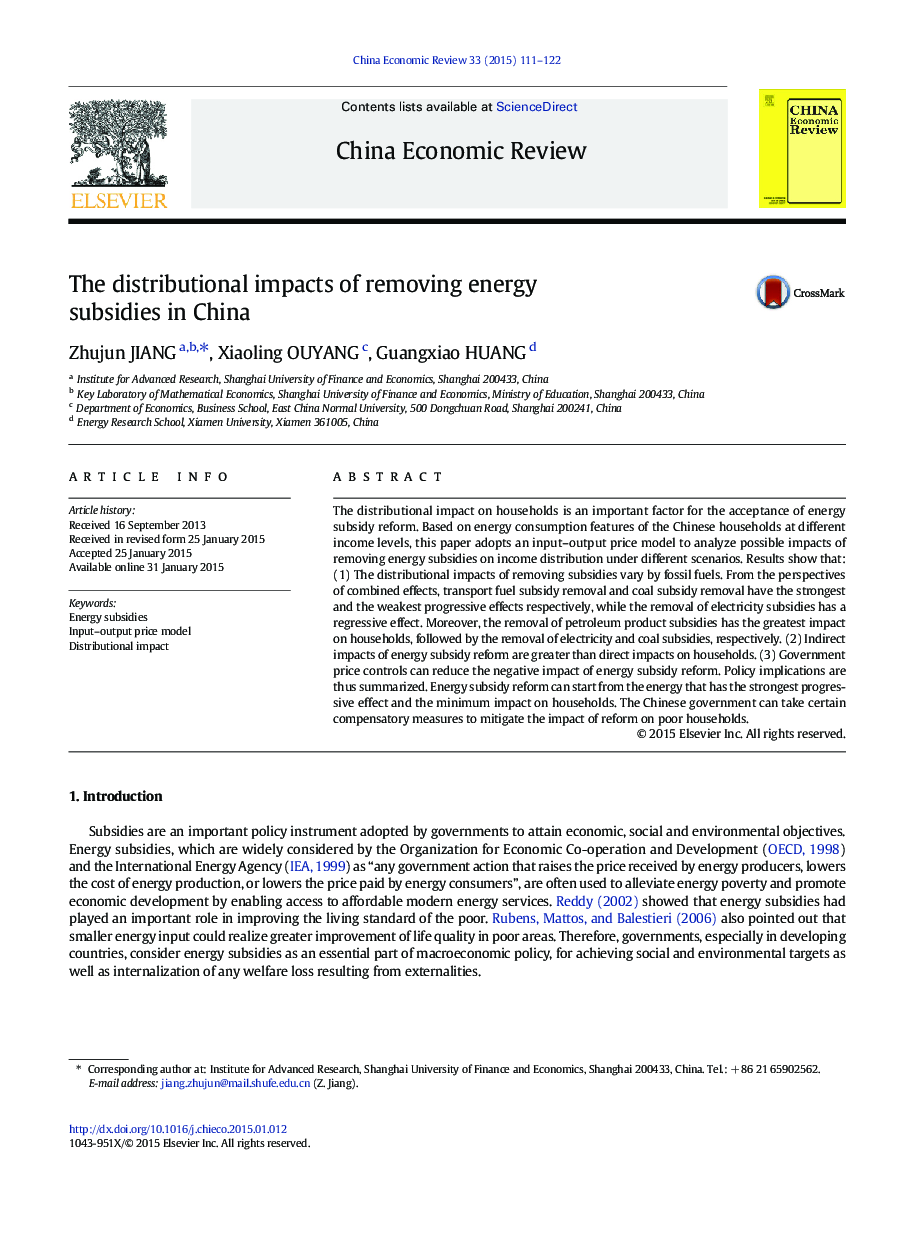| Article ID | Journal | Published Year | Pages | File Type |
|---|---|---|---|---|
| 5047505 | China Economic Review | 2015 | 12 Pages |
â¢We simulate and analyze possible impacts of fossil fuel subsidy elimination on income distribution using scenario analysis.â¢Distributional impacts of eliminating subsidies vary with different fossil fuels.â¢Indirect impacts of energy subsidy reform on households are greater than direct impacts.â¢Government price control can reduce the negative impact of subsidy reform.
The distributional impact on households is an important factor for the acceptance of energy subsidy reform. Based on energy consumption features of the Chinese households at different income levels, this paper adopts an input-output price model to analyze possible impacts of removing energy subsidies on income distribution under different scenarios. Results show that: (1) The distributional impacts of removing subsidies vary by fossil fuels. From the perspectives of combined effects, transport fuel subsidy removal and coal subsidy removal have the strongest and the weakest progressive effects respectively, while the removal of electricity subsidies has a regressive effect. Moreover, the removal of petroleum product subsidies has the greatest impact on households, followed by the removal of electricity and coal subsidies, respectively. (2) Indirect impacts of energy subsidy reform are greater than direct impacts on households. (3) Government price controls can reduce the negative impact of energy subsidy reform. Policy implications are thus summarized. Energy subsidy reform can start from the energy that has the strongest progressive effect and the minimum impact on households. The Chinese government can take certain compensatory measures to mitigate the impact of reform on poor households.
